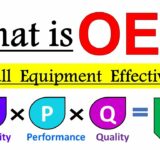Small businesses face many challenges, especially when it comes to growth. Managing finances, hiring employees, and competing with larger companies can prove daunting. One area where small businesses can compete on an even playing field with larger companies is content marketing. A well-crafted content marketing strategy can help small businesses establish their brand, build customer loyalty, and drive sales growth. In this article, we will discuss effective content marketing ideas for small business.
Know Your Audience
Before you create content, you must understand who your target audience is. What are their needs and pain points? What challenges do they face, and how can your product or service help them? Conduct market research to gain insights into your target audience’s behavior and preferences. Use this information to create customer personas that guide your content marketing efforts. Your content should resonate with your target audience and provide valuable insights that align with their needs.
Create Quality Content
Nowadays, customers are savvy, and they expect high-quality content that provides value. Therefore, it is crucial to create content that is relevant, engaging, informative, and helpful. Whether you are writing blog posts, social media posts, or ebooks, make sure you are providing your audience with valuable insights. Invest in quality writing, photography, and video, and ensure that your content is aesthetically pleasing and easy to read.
Use SEO Techniques
Investing in Search Engine Optimization (SEO) can have a massive impact on how successful your content marketing strategy can be. SEO aims to improve your website’s visibility on search engines like Google by ranking higher in search engine results pages. This means that if you optimize your website and your content for specific keywords, you’ll have a better chance of ranking higher in search results. The higher you rank, the more visibility you’ll have, and the more traffic you’ll receive. Use keyword research tools such as Google AdWords Keyword Planner to find keywords commonly used by your target audience. Use these keywords throughout your content, meta descriptions, and page titles.
Use Social Media Effectively
Social media is a powerful tool when it comes to content marketing. It allows you to reach a wide audience and increase brand awareness by sharing your content across various platforms. However, it’s essential to remember that not all social media platforms are created equal. You need to find the best platforms for your business, depending on your target audience. For example, if your business is aimed at a younger audience, you might focus on platforms like Instagram or TikTok. Share your content through visually appealing graphics, videos, and images that resonate with your audience, include hashtags, and engage with your followers to build a community around your brand.
Measure Your Results
Once you’ve implemented your content marketing strategy, it’s essential to monitor and measure your results. Analyzing your campaigns can improve future performance by helping you identify what is working and what is not. Use analytics tools like Google Analytics, Hootsuite, or Buffer to track metrics like website traffic, engagement rates, and lead generation. From this data, you can make data-driven decisions and adjust your content strategy to achieve better results.
Small businesses may often feel overwhelmed by the thought of growing their brand and expanding their reach. However, thanks to the digital age, content marketing has become an effective tool that can help small businesses make a name for themselves. The power of effective content marketing cannot be underestimated as it provides an excellent opportunity for small businesses to reach a wider audience and drive growth. In this article, we will explore some effective content marketing strategies that small businesses can adopt to navigate growth.
Know Your Target Audience
One of the most effective content marketing strategies that small businesses can employ is knowing their target audience. You cannot effectively market your products or services if you don’t know who your audience is. Therefore, small businesses should put in time and effort to research their target audience. This way, they can create content that resonates with their audience.
As a small business owner, you can take advantage of social media platforms like Facebook, Instagram, and Twitter to learn more about your target audience. These platforms provide insights into the demographics and behaviors of your audience. With this information, you can create content that appeals to them, leading to increased engagement and growth.
Create Valuable Content
Creating valuable content that is relevant to your audience is a great content marketing strategy. Valuable content is content that offers insights, educates, or entertains your audience. By creating content that adds value to your audience’s lives, you will build trust and rapport with them, leading to increased engagement and conversions.
Small businesses can create valuable content in various formats, including blog posts, videos, infographics, and podcasts. The key is to ensure that whatever format you choose provides value to your audience. If you can create content that is informative and valuable to your audience, you will be well on your way to achieving growth.
Engage with Your Audience
Another effective content marketing strategy for small businesses is engaging with their audience. Engaging with your audience means interacting with them on social media, replying to comments, and responding to their messages. Engaging with your audience shows that you value them and their opinions, leading to increased loyalty and growth.
Small businesses can use social media platforms to engage with their audience by responding to comments, retweeting and sharing posts, and hosting live events. When you engage with your audience, you create a better connection with them. This connection can drive engagement and growth, leading to increased brand awareness and sales.
Optimize Your Content for Search Engines
Optimizing your content for search engines is another effective content marketing strategy. Optimizing your content means ensuring that your content is easily discoverable by search engines like Google and Bing. By optimizing your content, you increase your chances of appearing at the top of search engine results pages (SERPs), driving more traffic to your website and increasing growth.
Small businesses can optimize their content by using keywords that are relevant to their audience. Additionally, they can use meta tags, alt tags, and header tags to improve their search engine rankings. By optimizing your content for search engines, you can increase your visibility in search engine results pages, leading to increased traffic, growth, and conversions.
Conclusion:
In conclusion, creating a strong content marketing strategy for your small business takes time, planning, and effort. Each step from determining your target audience, building your content, using SEO techniques effectively, and measuring your results is crucial to achieving success. By implementing these strategies, you can create an effective content marketing strategy that will establish your brand, build customer loyalty, and drive sales growth.
In conclusion, the power of effective content marketing strategies cannot be underestimated when it comes to navigating growth for small businesses. By knowing their target audience, creating valuable content, engaging with their audience, and optimizing their content for search engines, small businesses can increase their visibility and reach a wider audience. By implementing these content marketing strategies, small businesses can achieve growth and achieve their business goals.







